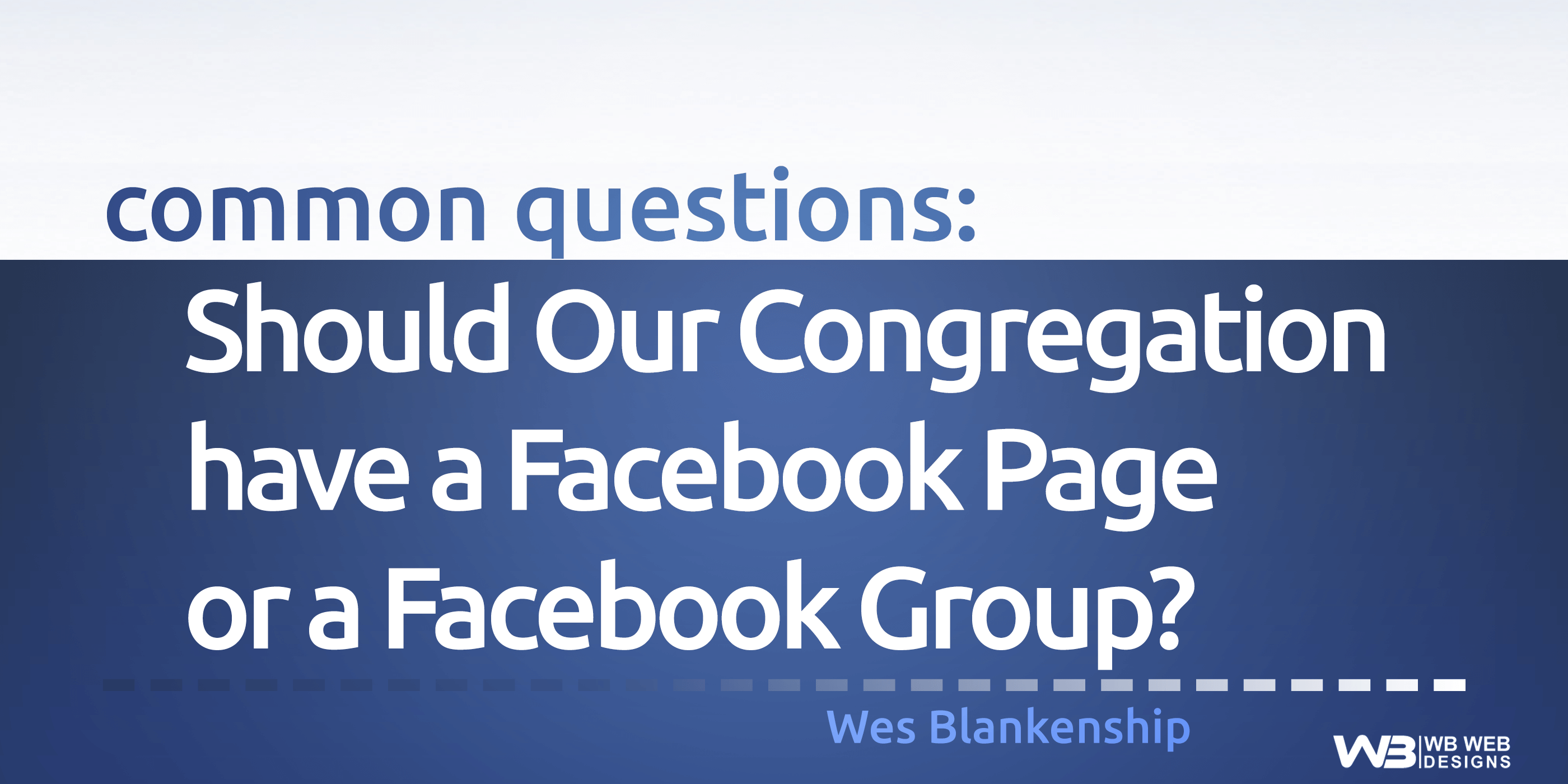Let’s start with two fundamental answers, and then we’ll get down to more details.
- There are important details between Pages and Groups.
- Your congregation should be using both.
To help answer the question, let’s talk about the purpose of Page and Groups.
Facebook Pages
Facebook Pages (and their posts) are visible to everyone on the Internet. Your Facebook Page should be the official Facebook presence for your local church work. It’s how you broadcast your message to anyone interested in listening.
Think of your Facebook Page as a sign close to the highway near your building. You add messages there and everyone driving by can read them.
Facebook Pages should be where you invite your community to upcoming events, share your service times, post inspiration and education content, or create content to tell others what you believe and what your congregation is like.
Here are a few sample ideas for content for your Facebook Page:
- Recent Sermons – Pull a single quote out and then link to a full sermon on your website
- Upcoming Public Events – These are events you want non-members to attend, such as Vacation Bible School, Bible Studies, Giveaways, etc. Always be sure to include times and addresses, so people know when and where the event takes place. Do not use acronyms or abbreviations for room names!
- Images with Scripture or inspirational thoughts / prayers. Be sure not to violate copyright!
- Short video content – Interview your minister or oldest member. Interview children at VBS. Give people a virtual tour of your church building. Tease an upcoming sermon series. These videos should be between 30 seconds – 2 minutes.
We help congregations an active, encouraging social media feed. Contact us to learn more.
Facebook Groups
When you create a Facebook Group, you can decide whether to make it publicly available for anyone to join, require administrator approval for members to join, or keep it private and by invitation only. Like with Pages, new posts by a group are included in the News Feeds of its members and members can interact and share with one another from the group.
We recommend that congregations created Closed Groups. These groups can be found when searching on Facebook, but you cannot see posts or post things until you request to join the group. You can have multiple administrators to monitor to make sure applications are addressed quickly.
Facebook Groups are the best place to discuss issues related to the local congregation. Some common things that should be posted in a group would be . . .
- Prayer requests or benevolence needs for members/family members
- Need a substitute teacher for a class
- Funeral arrangements for a brother/sister
- Details on upcoming holiday party
- Directions to a member’s home for a devotional
- Information about Lads to Leaders registration/lodging
Groups are also a great place to add more information to events. Let’s say that you are hosting a VBS. You would want to advertise the VBS on your Facebook Page, so your community knows when/where it takes place and include a link to register. Meanwhile, you could share a link to your Facebook Group to a signup form for your members to volunteer to teach, cook, or clean up.
Conclusion
Together, Pages and Groups help you reach out to your community and stay in touch with your membership. Using both tools will help your congregation. To summarize, Pages are the place to reach out to your community, but they are not to place to share personal or sensitive information related to your membership.
Think of your congregation as a business. Your Facebook Page would be your advertising platform that both customers and employees would benefit from following. Your Facebook Group would be for internal documents and group communication. Both are vital, but the target markets are very different.
If you have any questions about how to use these tools to help your congregation or digital outreach in general, shoot us an email. We would love to talk to you.
Wes
